Curriculum and Programs
Sunrise Learning Academy uses the Creative Curriculum in which students learn through active teaching strategies. It goes beyond rote learning and focuses on big-ideas, interesting projects, and adhering to individual student passions and needs. Thus, the big-ideas incorporate varied and engaging activities and build a sense of continuity to stimulate students.
In addition to the imaginative tools created by our staff, many nationally accredited materials are used in our center. Daily schedules and lesson plans are posted in each classroom.
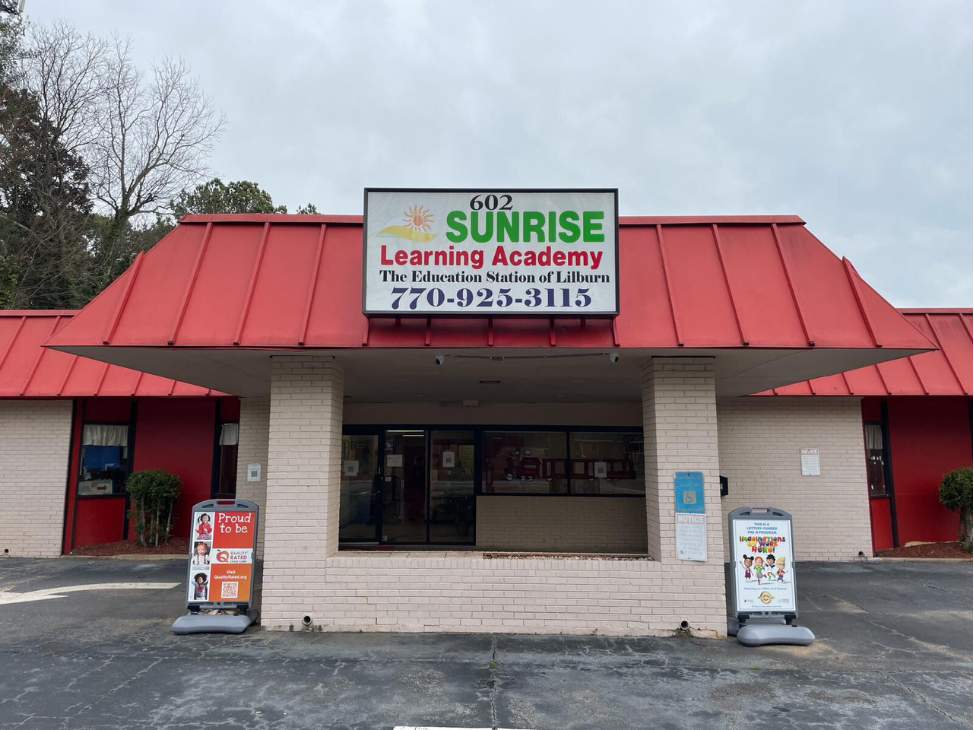
Quality and Excellence
Join our learning academy for top-notch childcare and education! We’re excited to share that we’ve earned a 2-star rating from Georgia’s Quality Rated system, showing our commitment to quality. With caring teachers, fun learning activities, and a safe environment, we’re the perfect place for your child to grow and learn. Come see why families love our academy!
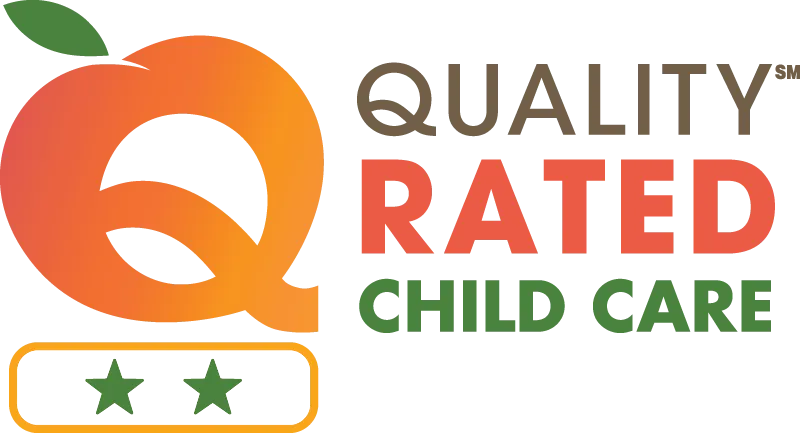
Our Education Program
At our daycare, children enjoy a balanced mix of fun activities like arts, outdoor play, and story time, designed to nurture creativity and learning. Below are some main points to touch on activities we do at Sunrise.
Daily Activities
Infant Care
Our infant care program is dedicated to nurturing babies in their crucial first year of life, focusing on their physical, emotional, developmental, and social well-being. We provide a safe and loving environment where infants receive attentive care from our skilled caregivers. Our program includes personalized routines that cater to each baby’s needs, engaging activities that stimulate growth and development, and consistent communication with parents to ensure peace of mind and involvement in their child’s daily experiences.
Physical
- Lifts head and chest while lying on stomach
- Rolls over from front to back and back to front
- Sits without support
- Crawls or scoots on hands and knees
- Pulls self up to stand, cruises along furniture
- Takes first independent steps
- Begins to run, jump, and climb
Cognitive
- Responds to familiar voices and sounds
- Begins to recognize faces and objects
- Engages in babbling and imitates sounds
- Understands simple words and commands
- Begins to use gestures and point to objects of interest.
Emotional
- Develops attachment bonds with caregivers, showing distress when separated.
- Expresses emotions through facial expressions, vocalizations, and body language.
- Begins to show preference for familiar caregivers and seeks comfort when upset.
Although children start school at usually 3-6 years of age, learning and education begin from the very beginning, and this stage is pivotal for a child’s learning abilities. An infant shows signs of development in many ways.
Infant Care
Our infant care program is dedicated to nurturing babies in their crucial first year of life, focusing on their physical, emotional, developmental, and social well-being. We provide a safe and loving environment where infants receive attentive care from our skilled caregivers. Our program includes personalized routines that cater to each baby’s needs, engaging activities that stimulate growth and development, and consistent communication with parents to ensure peace of mind and involvement in their child’s daily experiences.
Physical
- Lifts head and chest while lying on stomach
- Rolls over from front to back and back to front
- Sits without support
- Crawls or scoots on hands and knees
- Pulls self up to stand, cruises along furniture
- Takes first independent steps
- Begins to run, jump, and climb
Cognitive
- Responds to familiar voices and sounds
- Begins to recognize faces and objects
- Engages in babbling and imitates sounds
- Understands simple words and commands
- Begins to use gestures and point to objects of interest.
Emotional
- Develops attachment bonds with caregivers, showing distress when separated.
- Expresses emotions through facial expressions, vocalizations, and body language.
- Begins to show preference for familiar caregivers and seeks comfort when upset.
Although children start school at usually 3-6 years of age, learning and education begin from the very beginning, and this stage is pivotal for a child’s learning abilities. An infant shows signs of development in many ways.
Group Time
- Sing songs and listen to stories.
- Engage in simple group games and activities.
- Develop social skills and bonding.
Activities Center
- Free play with age-appropriate toys.
- Explore sensory activities like textures and sounds.
- Encourage curiosity and independent play.
Outdoor Play or Indoor Gross Motor Play
- Enjoy fresh air and sunshine during outdoor play.
- Use soft mats and climbing structures indoors.
- Promote physical development and motor skills.
Quiet Time: Nap Time
- Rest in a calm, cozy environment.
- Follow individual sleep schedules.
- Recharge and relax for more fun activities.
Although children start school at usually 3-6 years of age, learning and education begin from the very beginning, and this stage is pivotal for a child’s learning abilities. An infant shows signs of development in many ways.
Toddler Development
Our toddler development program is crafted to support the blossoming skills of children aged 1-2 years. It’s a nurturing space that encourages toddlers to explore and learn through play, fostering their cognitive, language, physical, and social-emotional growth. We provide a variety of activities, such as problem-solving puzzles, creative arts, and sensory play, all within a safe and stimulating environment. Our dedicated educators guide each child’s development, ensuring they receive the individual attention they need to thrive during these formative years.
Physical
- Refines gross motor skills like running, jumping, and climbing stairs independently.
- Develops fine motor skills such as using utensils, drawing shapes, and dressing independently.
- Shows increased coordination and balance, riding a tricycle, throwing and catching a ball.
- Demonstrates improved hand-eye coordination, manipulating small objects and building with blocks.
Cognitive
- Develops language rapidly, expanding vocabulary and forming simple sentences.
- Engages in imaginative play, pretending to be different characters and engaging in symbolic play.
- Shows curiosity and asks questions about the world around them.
- Starts to develop basic literacy and numeracy skills, recognizing letters and numbers.
Emotional
- Develops a sense of self-awareness and begins to identify and label emotions.
- Demonstrates empathy and understanding of others’ feelings, sharing and taking turns.
- Experiences a wide range of emotions, including happiness, anger, sadness, and fear.
- Begins to develop self-regulation skills, learning to manage emotions and impulses.
This is usually the time when a child starts to expand their learning and interact more with others. It is also the period when they start preschool, which significantly affects all later stages of their life.
Group Time
- Sing songs and read stories together.
- Participate in simple group games and activities.
- Build social skills and friendships.
Activities Center
- Engage in free play with a variety of toys.
- Explore different materials and activities.
- Foster creativity and independence.
Outdoor Play or Indoor Gross Motor Play
- Run, climb, and play games outside.
- Use indoor play equipment for safe physical activity.
- Develop coordination and motor skills.
Quiet Time: Nap Time
- Rest in a calm, comfortable setting.
- Follow a consistent nap schedule.
- Refresh and recharge for the rest of the day.
This is usually the time when a child starts to expand their learning and interact more with others. It is also the period when they start preschool, which significantly affects all later stages of their life.
Preschool Development
We nurture children’s love for reading and develop foundational literacy skills through engaging activities like phonological awareness games, alphabet exploration, vocabulary enrichment, and print-rich experiences. We emphasize storytelling, narrative development, and emergent writing to encourage creativity and self-expression. By providing a supportive and stimulating environment, we empower children to become confident readers and learners, laying a strong foundation for their academic success and future endeavors.
Physical
- Shows increased strength, agility, and endurance in physical activities like sports.
- Demonstrates improved fine motor skills for tasks such as writing, typing, and drawing detailed pictures.
- May experience the onset of early puberty-related physical changes such as growth spurts, changes in body composition.
Cognitive
- Demonstrates improved problem-solving abilities and logical reasoning skills.
- Develops a greater capacity for abstract thinking, understanding cause-and-effect relationships.
- Shows increased interest in learning, developing personal interests and hobbies.
- Demonstrates improved memory and organizational skills, able to remember and follow multi-step instructions.
Emotional
- Develops a stronger sense of identity and self-esteem, forming a clearer understanding of personal strengths and weaknesses.
- Demonstrates empathy and perspective-taking, considering others’ feelings and points of view.
- Shows increased independence from caregivers while still seeking emotional support and guidance.
- Experiences emotional ups and downs related to social relationships, academic performance, and personal challenges.
This stage is where a child ‘grows up.’ They are more likely to pick up habits from the familiarization of their usual activities. They need strong support during these times as life becomes more complex for them and they start to develop their sense of self as well as understanding others.
Learning Stations/Activities Center
- Explore different learning areas like art, puzzles, and building blocks.
- Encourage hands-on learning and creativity.
Small Group Activities
- Participate in focused tasks with a few peers.
- Develop cooperation and teamwork skills.
Large Group Activities
- Enjoy story time and group games.
- Enhance listening skills and social interaction.
Outdoor Time
- Play outside to run, climb, and explore.
- Promote physical health and a love for nature.
This stage is where a child ‘grows up.’ They are more likely to pick up habits from the familiarization of their usual activities. They need strong support during these times as life becomes more complex for them and they start to develop their sense of self as well as understanding others.
Pre-Kindergarten Development
In Georgia’s Free Pre-K program, children aged 4–5 are becoming more independent, learning new habits through daily routines, and beginning to understand themselves and others more deeply. This stage is a crucial time in their development, and Sunrise is here to support them every step of the way.
Our Pre-K curriculum is designed to prepare children for the exciting transition to kindergarten. We nurture a love for learning by focusing on literacy, language development, math, science, and social-emotional growth—all while meeting each child at their own pace. Our inclusive environment supports all learners, including English-language learners, ensuring every child gains the foundational skills needed for future academic success.
Physical
- Children show more strength and coordination by running, jumping, and playing.
- Activities like drawing, cutting with scissors, and building with small blocks help children improve their muscles.
- Children start to do more tasks on their own like washing hands and tidying up toys.
- Playing with puzzles, threading beads, and similar activities enhance their ability to coordinate body movements.
- Encouraging lots of active play helps build endurance and promotes overall physical health.
Cognitive
- Children start solving simple problems, which help develop their critical thinking skills.
- They learn to identify and understand basic numbers and shapes through fun activities and games.
- Rapid growth in vocabulary as they learn new words through stories, songs, and daily conversations.
- Enhanced memory skills, enabling them to recall and retell stories.
- Growth in creativity and imaginative play, often seen in role-playing games and fun activities.
Emotional
- Children start to understand and recognize their likes, dislikes, and strengths, building self-esteem.
- They begin to show empathy by considering others’ feelings and perspectives, learning to share and take turns.
- Children become more independent while still seeking emotional support when needed.
- They may experience a range of emotions, from happiness to frustration, as they navigate friendships with their classmates.
- They become better at expressing their emotions through words and actions, helping them communicate with others.
Free Ga Pre-k
In Pre-Kindergarten, like Georgia’s Free Pre-K program, children are growing up and becoming more independent. They start to learn new habits from their daily routines and activities. This is a crucial time when they need lots of support because life is getting more complicated for them. They are starting to figure out who they are and how to understand others better.
Literacy & Manipulatives
- Practice reading and writing skills through fun and engaging activities
- Use hands-on materials like puzzles and building blocks to strengthen understanding
Phonological Awareness & Music
- Explore sounds and letters through songs, rhymes, and rhythm
- Enjoy music-based activities that enhance language development
Small & Large Group Activities
- Collaborate in small groups to build teamwork and critical thinking
- Participate in large group games, stories, and social play to develop communication skills
Outdoor Play
- Run, climb, and explore during structured outdoor time
- Support physical development and a healthy appreciation for nature
Free Ga Pre-k
In Pre-Kindergarten, like Georgia’s Free Pre-K program, children are growing up and becoming more independent. They start to learn new habits from their daily routines and activities. This is a crucial time when they need lots of support because life is getting more complicated for them. They are starting to figure out who they are and how to understand others better.
School-Age Childcare
Our school-age child care program is designed to support the growth and development of children aged 6-12 years. We offer a nurturing environment that caters to the diverse needs of school-aged children, providing them with opportunities for learning, recreation, and socialization. With a focus on fostering independence and self-esteem, our child care workers facilitate educational activities, assist with homework, and encourage creative expression through art and play.
Physical
- Children show more strength and coordination by running, jumping, and playing.
- Activities like drawing, cutting with scissors, and building with small blocks help children improve their muscles.
- Children start to do more tasks on their own like washing hands and tidying up toys.
- Playing with puzzles, threading beads, and similar activities enhance their ability to coordinate body movements.
- Encouraging lots of active play helps build endurance and promotes overall physical health.
Cognitive
- Children start solving simple problems, which help develop their critical thinking skills.
- They learn to identify and understand basic numbers and shapes through fun activities and games.
- Rapid growth in vocabulary as they learn new words through stories, songs, and daily conversations.
- Enhanced memory skills, enabling them to recall and retell stories.
- Growth in creativity and imaginative play, often seen in role-playing games and fun activities.
Emotional
- Children start to understand and recognize their likes, dislikes, and strengths, building self-esteem.
- They begin to show empathy by considering others’ feelings and perspectives, learning to share and take turns.
- Children become more independent while still seeking emotional support when needed.
- They may experience a range of emotions, from happiness to frustration, as they navigate friendships with their classmates.
- They become better at expressing their emotions through words and actions, helping them communicate with others.
Free Ga Pre-k
In Pre-Kindergarten, like Georgia’s Free Pre-K program, children are growing up and becoming more independent. They start to learn new habits from their daily routines and activities. This is a crucial time when they need lots of support because life is getting more complicated for them. They are starting to figure out who they are and how to understand others better.
Homework and Reading
- Complete homework assignments with support.
- Enjoy quiet reading time to enhance literacy skills.
Outdoor Play
- Engage in active play like sports and games outside.
- Promote physical health and energy release.
Group Activities
- Participate in team games and projects.
- Develop social skills and teamwork.
School-Age Childcare
Our school-age child care program is designed to support the growth and development of children aged 6-12 years. We offer a nurturing environment that caters to the diverse needs of school-aged children, providing them with opportunities for learning, recreation, and socialization. With a focus on fostering independence and self-esteem, our child care workers facilitate educational activities, assist with homework, and encourage creative expression through art and play.
English Language Learners
English Language Learners (ELL) are students who are learning English as an additional language alongside their native language. They face challenges in speaking, listening, reading, and writing in English but receive support from schools through ESL classes and bilingual education programs. Teachers use various strategies like visual aids and peer interactions to help ELL students succeed. Being bilingual is beneficial, as it opens up opportunities in our globalized world, and ELL students bring unique perspectives to the classroom, enriching the learning experience for all.
Holidays And
Summer Camps
Our preschool’s holiday and summer camps offer a diverse range of themed weekly activities—from Science Week with engaging experiments to Art Week for creative expression, Culinary Week for budding chefs, and Sports Week to promote physical activity. We also include Cultural Exploration to celebrate diversity, ensuring each camp is a unique opportunity for growth, learning, and fun—creating cherished memories for our young learners.
Pre-K Development
Our Pre-K program is tailored for 4-5 year olds, preparing them for the exciting transition to kindergarten. We focus on deepening knowledge in language, math, science, and social skills, meeting each child at their own pace. Our inclusive environment supports all learners, including English-language learners, ensuring they gain the foundational skills needed for their next educational step in a nurturing and engaging setting.
Daily Schedules for Each Age Group at Sunrise
At Sunrise, each class follows a unique schedule according to their age group. Our schedules ensure that infants, toddlers, preschoolers, pre-K, and school-age children all engage in age-appropriate learning and fun, promoting their overall development and well-being.
Specialized Learning Approaches
Project-Based Learning
At Sunrise Learning Academy, we make learning fun and meaningful for kids by doing exciting projects that mix different lessons with real-life stuff. Our kids get to be curious, creative, and learn how to solve problems by diving into projects that are just right for what they like and can do. They get to really understand things, love learning more, and get ready for big-kid school. We help our little ones lead their own learning by asking questions, trying out new things, and seeing how what they learn fits into the world around them.
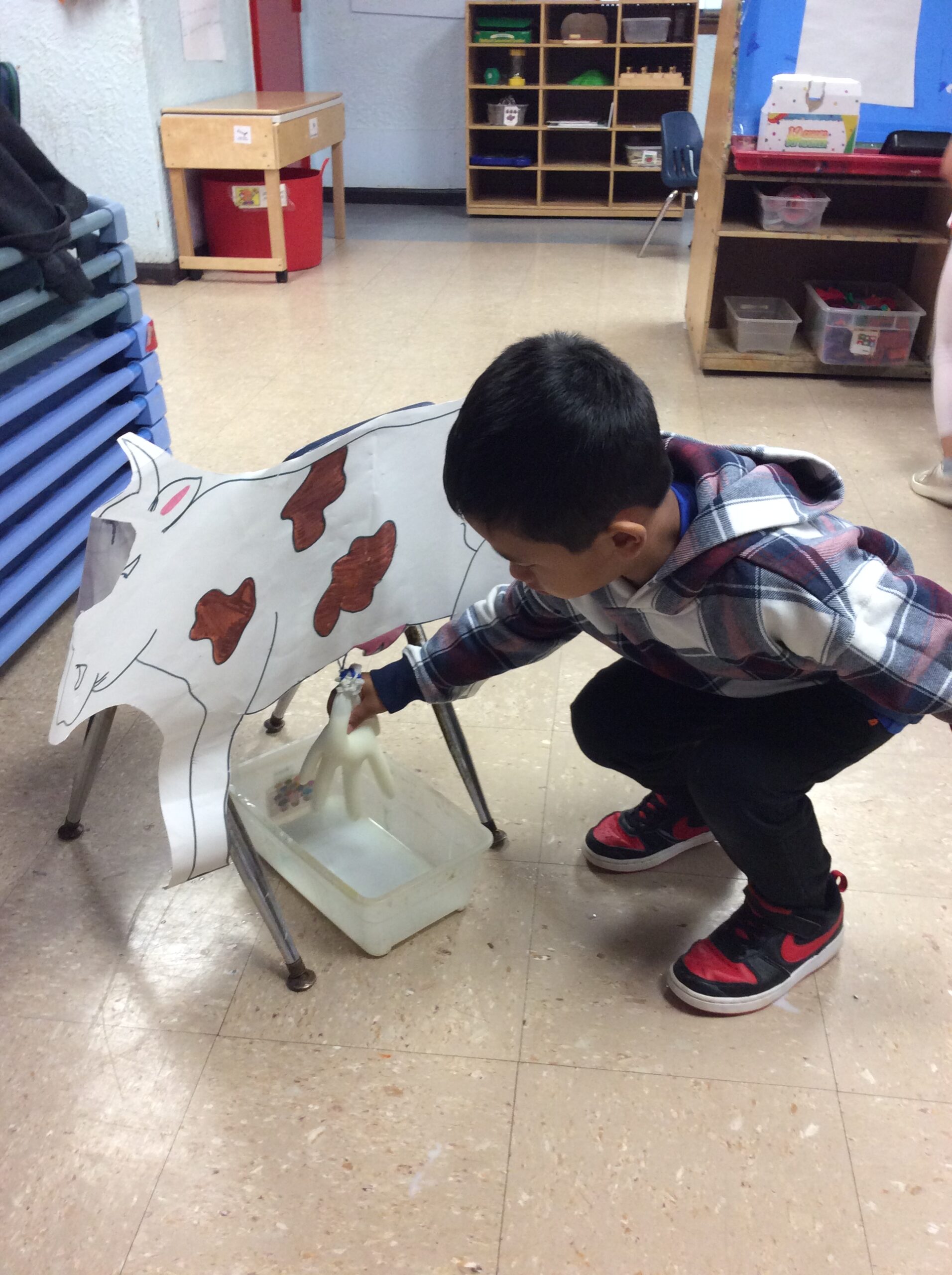
Self-Directed Learning
Sunrise Learning Academy uses a special way of learning called self-directed learning, which is inspired by Montessori. This type of learning lets students take charge of their own learning journey. It’s all about empowering students to explore and discover things on their own. In this approach, students get to choose what they want to learn and how they want to learn it. It’s like giving them the keys to their own learning adventure.
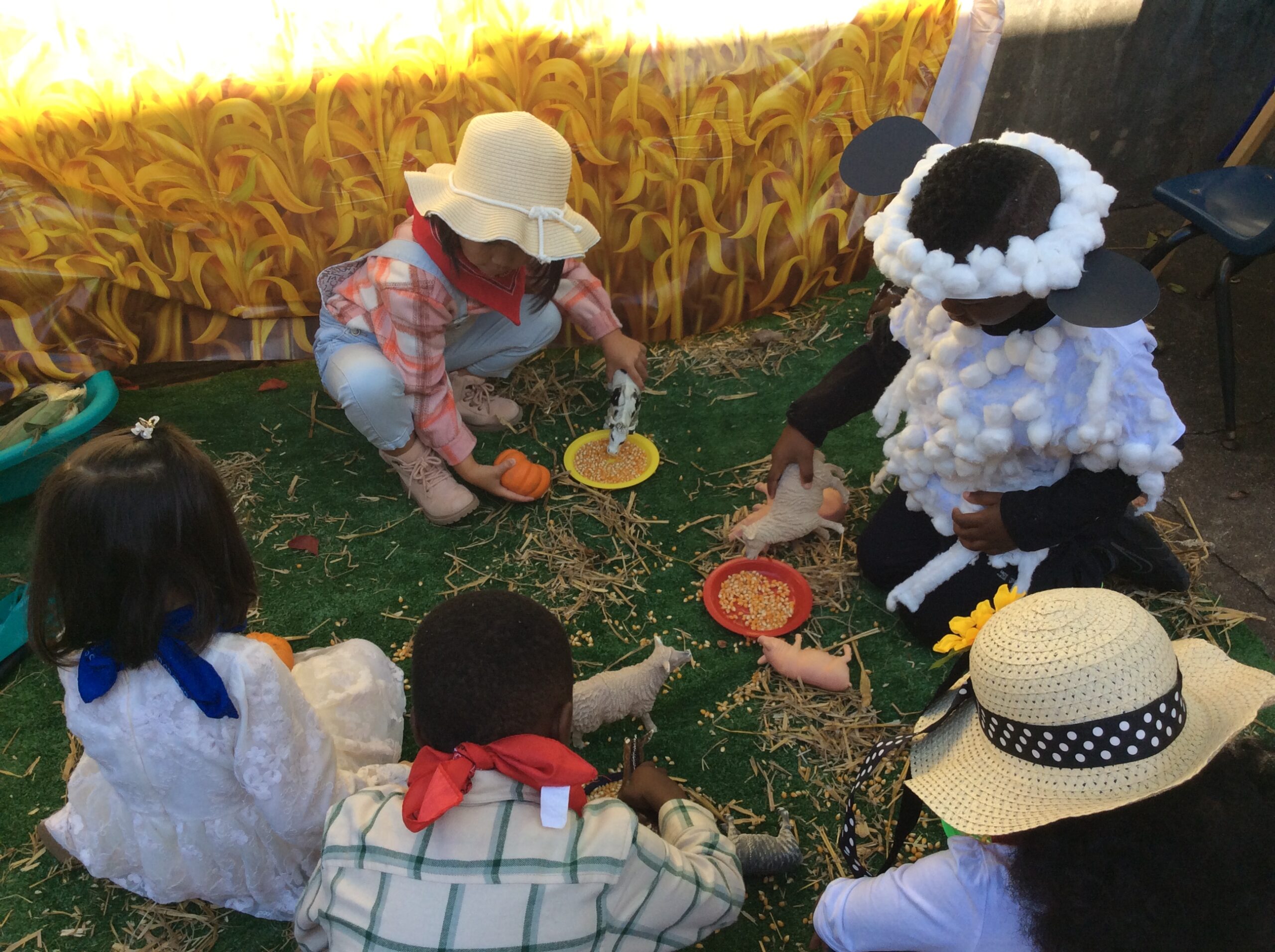
Experiential Learning
At Sunrise Learning Academy, we also use a special kind of learning called experiential learning, inspired by the ideas of the Reggio Emilia approach. This way of learning is all about hands-on experiences and exploring the world around us. Students learn by doing things, like conducting experiments, going on field trips, and working on creative projects. It’s a fun and engaging way for them to learn and understand concepts deeply. In this approach, teachers act as guides, encouraging students to ask questions, investigate, and discover new things for themselves. It’s like learning by diving into real-life adventures!
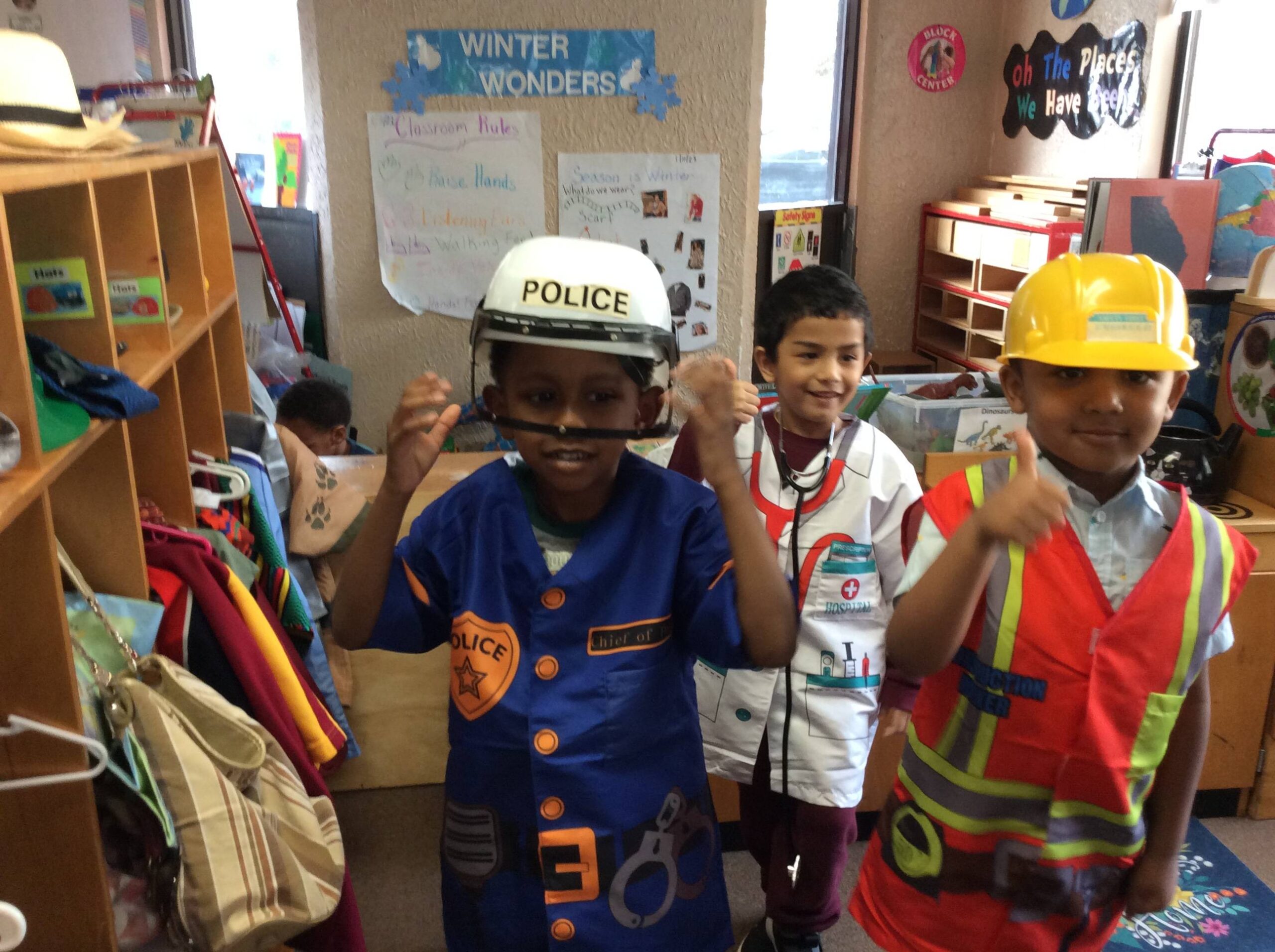
Holistic Development
Sunrise Learning Academy embraces the Waldorf approach, focusing on the whole child—mind, heart, and hands. Our kids get to dive into learning that’s full of art, play, and real-world stuff. They grow their imagination, think in new ways, and care about others and our planet. We help them become strong, kind, and excited about learning, ready for all of life’s big adventures.
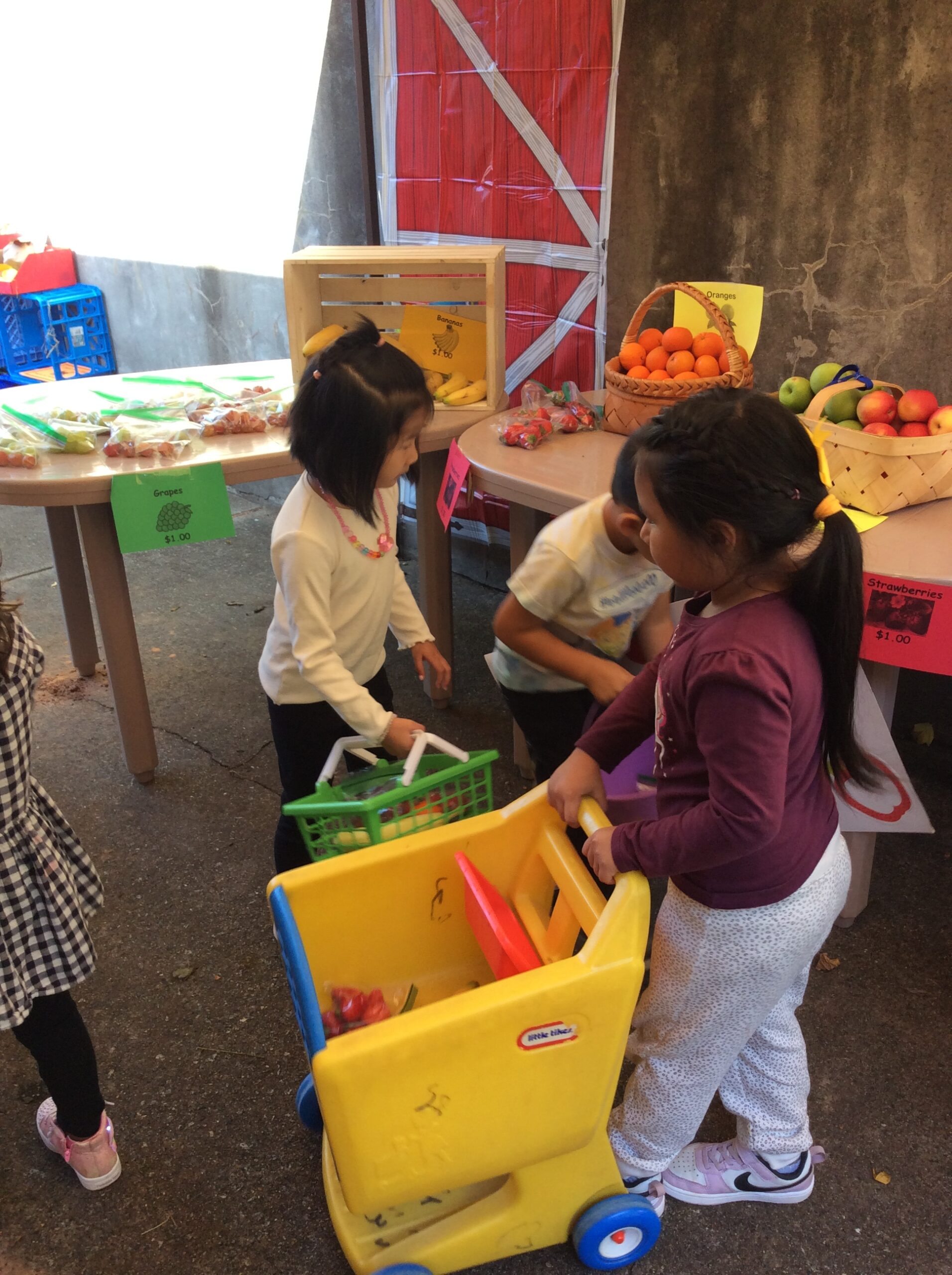
Our Educational Programs Includes:
Early Literacy
We nurture children’s love for reading and develop foundational literacy skills through engaging activities like phonological awareness games, alphabet exploration, vocabulary enrichment, and print-rich experiences. We emphasize storytelling, narrative development, and emergent writing to encourage creativity and self-expression. By providing a supportive and stimulating environment, we empower children to become confident readers and learners, laying a strong foundation for their academic success and future endeavors.
Numeracy
Through interactive and hands-on activities, we engage students in exploring numbers, patterns, shapes, and problem-solving strategies. Our approach emphasizes building a strong foundation in mathematical concepts, fostering critical thinking skills, and promoting confidence in mathematical abilities. By providing a supportive learning environment and personalized instruction, we empower students to develop mathematical fluency and problem-solving proficiency, preparing them for future academic achievements and real-world applications.
Social Skills Development
Through interactive activities, role-playing exercises, and group discussions, we foster communication, cooperation, empathy, and conflict resolution skills. By emphasizing the importance of respect, kindness, and collaboration, we help students develop positive relationships, build self-confidence, and thrive in both academic and social environments. Our program empowers students to become confident, compassionate individuals who contribute positively to their communities and succeed in diverse social settings.
Art Exploration
Through hands-on activities, guided projects, and exposure to different art forms, students explore their imagination, develop fine motor skills, and gain confidence in their artistic abilities. From painting and drawing to sculpture and mixed media, our program encourages experimentation and self-expression, fostering a love for art and creativity. By providing a supportive and inspiring environment, we empower students to discover their unique artistic voice, appreciate the beauty of art, and cultivate a lifelong passion for creativity and self-expression.
Physical Activities
Through a variety of fun and engaging activities, such as sports, games, and dance, we encourage students to stay physically active and develop essential motor skills, coordination, and teamwork. Our program not only fosters physical fitness but also emphasizes the importance of sportsmanship, resilience, and goal-setting. By providing opportunities for movement and play in a supportive and inclusive environment, we empower students to lead healthy lifestyles, build confidence, and develop lifelong habits of physical activity and well-being.
Our Curriculum Structure
Holistic Approach: Our curriculum addresses all aspects of a child’s development – cognitive, social, emotional, and physical.
Age-Appropriate Learning: Tailored curriculum components for infants, toddlers, preschoolers, and school-age children.
Integrated Learning Experiences: We blend play-based activities, hands-on exploration, and group projects for diverse learning opportunities.
Thematic Units: Organized around engaging themes like nature, community, and culture to promote interdisciplinary learning.
Assessment and Progress Monitoring: Ongoing assessments ensure each child’s development is tracked and supported.
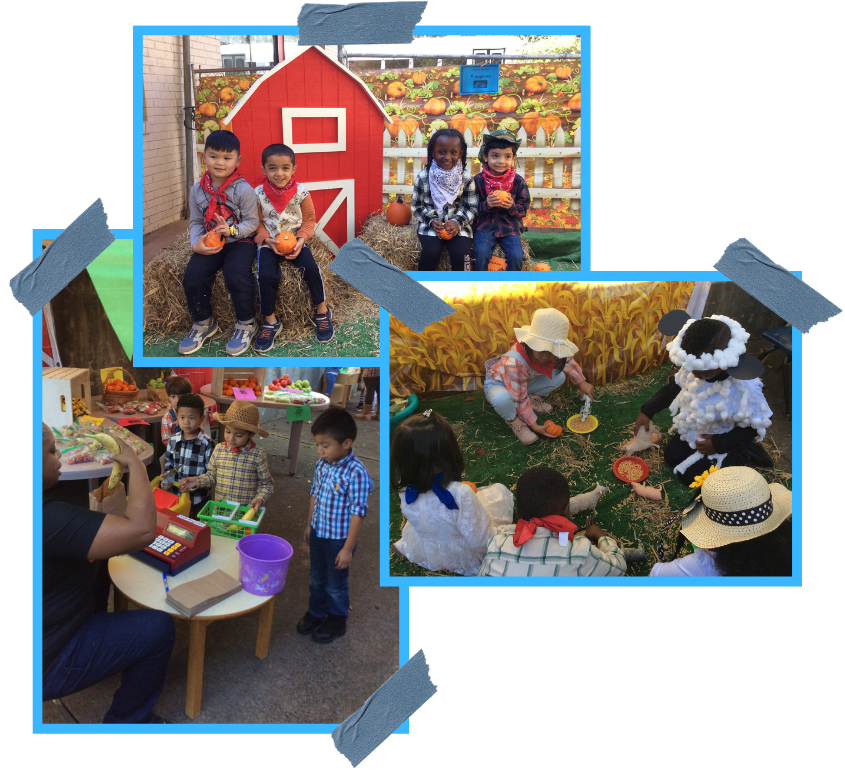
Our Philosophies
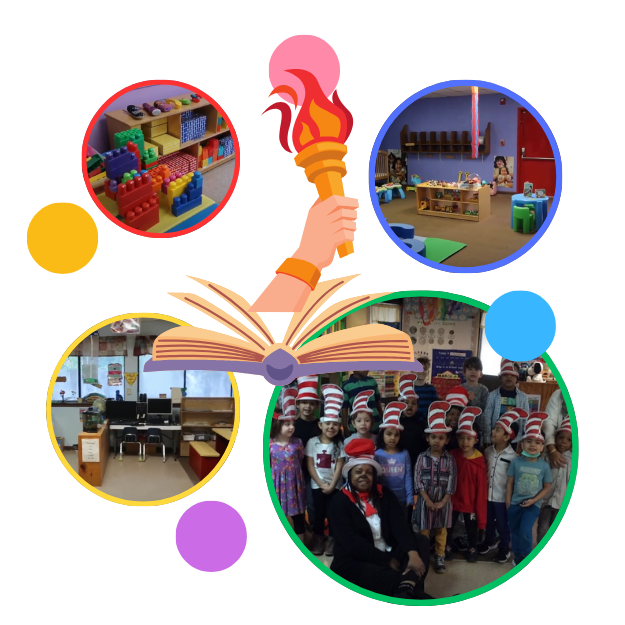
Child-Centered Approach: We believe in honoring each child’s unique strengths, interests, and abilities.
Play-Based Learning: Our curriculum emphasizes hands-on, experiential learning experiences to foster exploration and imagination.
Constructivism: Children actively construct knowledge through interaction with the environment, encouraging inquiry and discovery.
Inquiry-Based Learning: We promote curiosity and problem-solving skills through open-ended exploration and questioning.
Cultural Responsiveness: Our curriculum celebrates diversity and inclusivity, incorporating diverse perspectives and experiences.
